Standing up to someone’s offensive or harmful behavior is rarely easy, especially when it involves people close to us. Many of us struggle with knowing when to speak up, how to set boundaries, and how to protect our values without causing unnecessary conflict.
This story is about this Original Poster (OP) who reached her breaking point with her brother-in-law’s racist and inappropriate remarks. Her decision to confront him wasn’t received well, and this left her wondering if she was the villain.
More info: Reddit
Knowing when to speak up against offensive behavior is never easy, especially when it involves people close to us

Image credits: freepik / Freepik (not the actual photo)
The author, a mother of an almost-one-year-old, had long tolerated her brother-in-law’s racist and inappropriate comments at family events
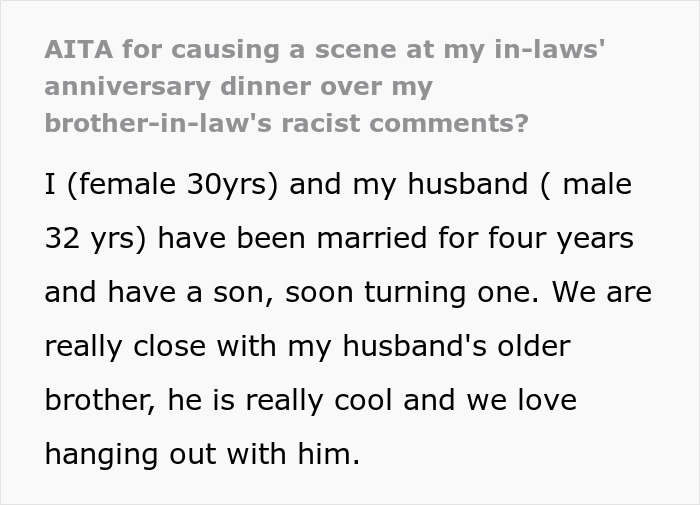
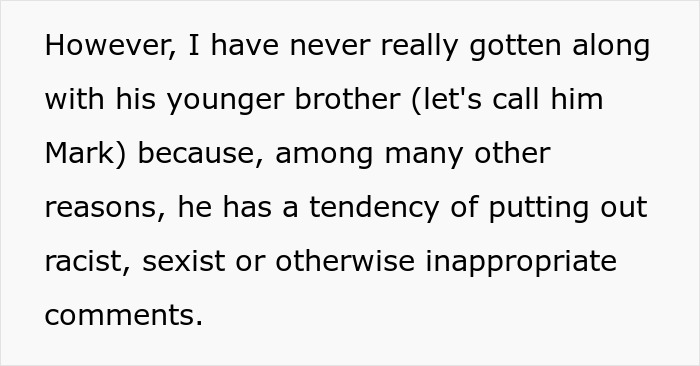
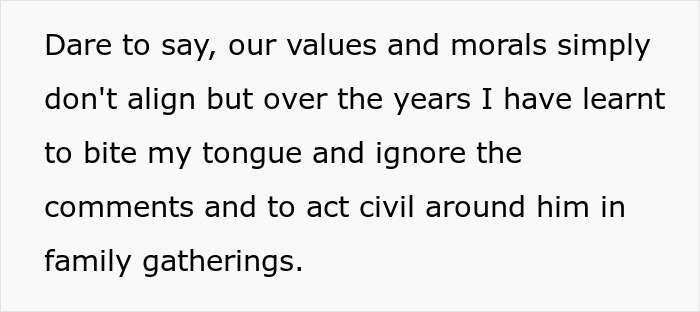
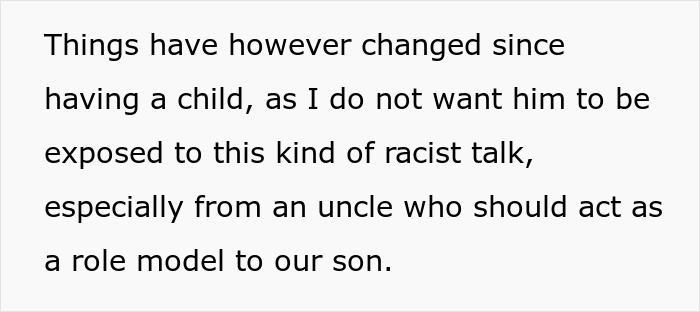
Image credits: No_Car8712

Image credits: freepik / Freepik (not the actual photo)
She discussed her concerns with her husband, asking him to intervene or talk to his brother to prevent such behavior around their child
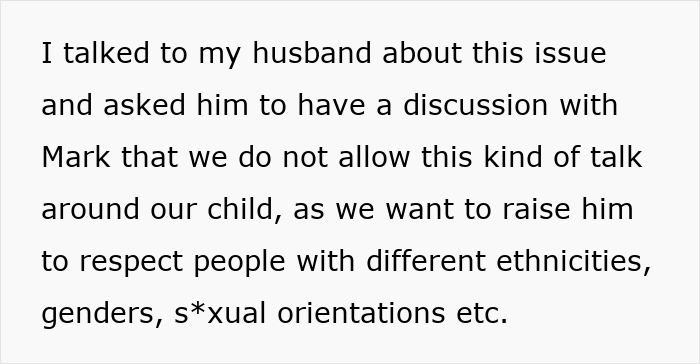
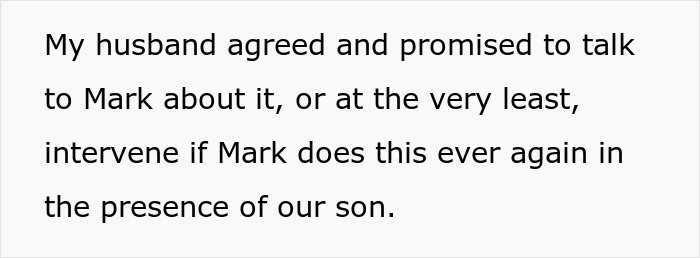
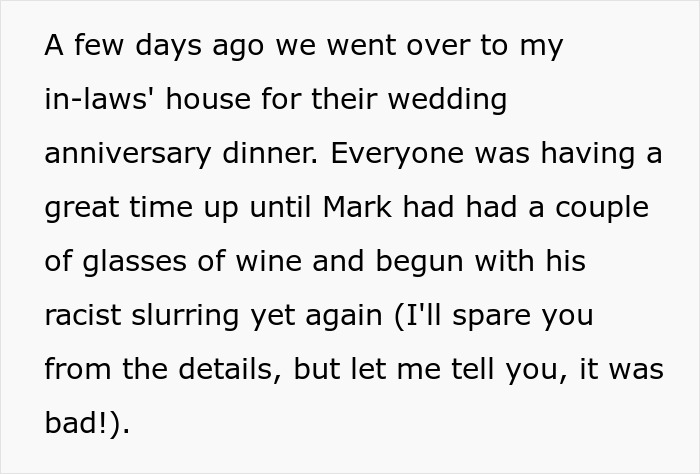
Image credits: No_Car8712

Image credits: EyeEm / Freepik (not the actual photo)
During her in-laws’ wedding anniversary dinner, the brother began making offensive remarks again, but her husband stayed silent

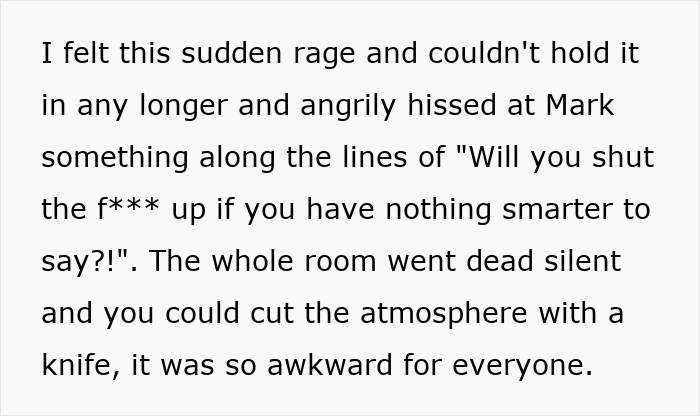
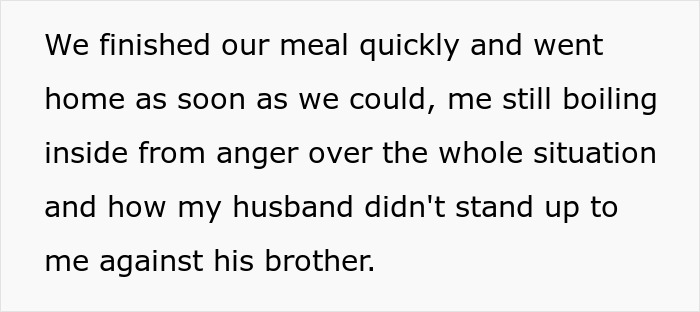
Image credits: No_Car8712

Image credits: Anna Tolipova / Freepik (not the actual photo)
Reaching her limit, she angrily confronted the brother at the table, creating an awkward and tense atmosphere for everyone
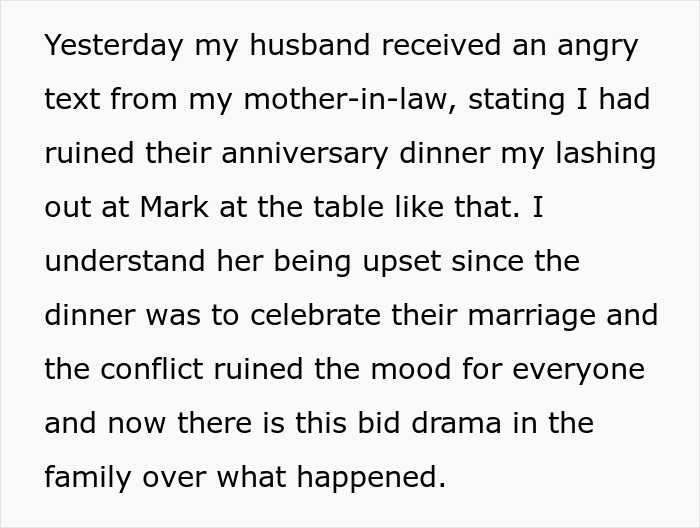
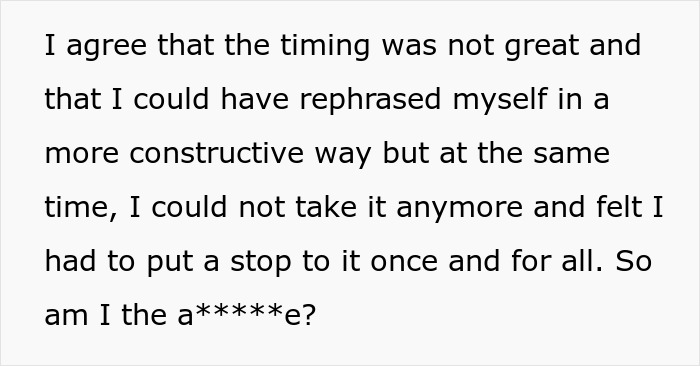

Image credits: No_Car8712
The next day, her mother-in-law sent an angry text accusing her of ruining the anniversary, which left her wondering if she was the bad guy
The OP and her husband have been happily married for four years and are raising their almost-one-year-old son. She noted that they were close with the husband’s older brother but not so much with the younger one, who had a tendency to put out sexist and racist comments at every family function.
For years, she tolerated his behavior for the sake of peace; however, becoming a mom changed everything. She no longer wanted her baby boy growing up hearing that kind of toxic talk, especially from family, so before an anniversary dinner at their in-laws’ house, she had a serious chat with her husband.
She asked him to talk to his younger brother, or at least step in next time he said something inappropriate, and her husband agreed. On the day of the dinner, things were going great until the younger brother, who’d had a few glasses of wine, started spewing offensive remarks again. The OP glanced at her husband to step in, but he kept sipping on his wine and didn’t.
The OP finally exploded and asked her brother-in-law to shut up if he had nothing smart to say. The room went silent, dinner wrapped up fast, and the OP left with her husband. The next day, her mother-in-law texted, furious that she had “ruined” their anniversary, and this left her wondering if she was wrong. Sure, the timing wasn’t ideal, but she’d simply reached her limit.

Image credits: Timur Weber / Pexels (not the actual photo)
The problem with the OP’s husband refusing to intervene in the situation is that it makes him an enabler of his brother’s behavior. Verywell Mind explains that when someone encourages, makes excuses, denies, minimizes, or hides a person’s problematic behavior as opposed to addressing it, that is enabling.
Psychology Today builds on this by stating that enabling is often done out of fear, loyalty, or a desire to keep the peace. However, they emphasize that it reinforces negative patterns by letting the person avoid facing the consequences of their actions, which in turn hinders personal growth and prevents them from developing a sense of responsibility.
When a person then chooses to call out bad behavior, it can trigger an unpleasant response, like in the case of the OP. Metabolic highlights that people often react with anger when their bad behavior is corrected because it can feel like a personal attack on their self-esteem.
They also add that it may evoke embarrassment, inadequacy, or a loss of control, and that these reactions are tied to deep-seated needs for respect, validation, and maintaining a positive self-image. They emphasize that how the correction is delivered also matters, and that if it comes across as condescending or confrontational, it is more likely to trigger defensiveness and anger.
Netizens supported the OP, calling out her brother-in-law’s behavior as the real disruption and her husband and in-laws for letting it slide. They pointed out that her husband broke his promise to intervene and that the silence from others felt like tacit approval of the racist remarks.
Do you agree with this? Do you think the real problem here is just one person, or a whole family dynamic? We would love to know your thoughts!
Netizens were focused on the long-term risk to the author’s child and urged her to consider setting firmer boundaries or distancing herself if nothing changes
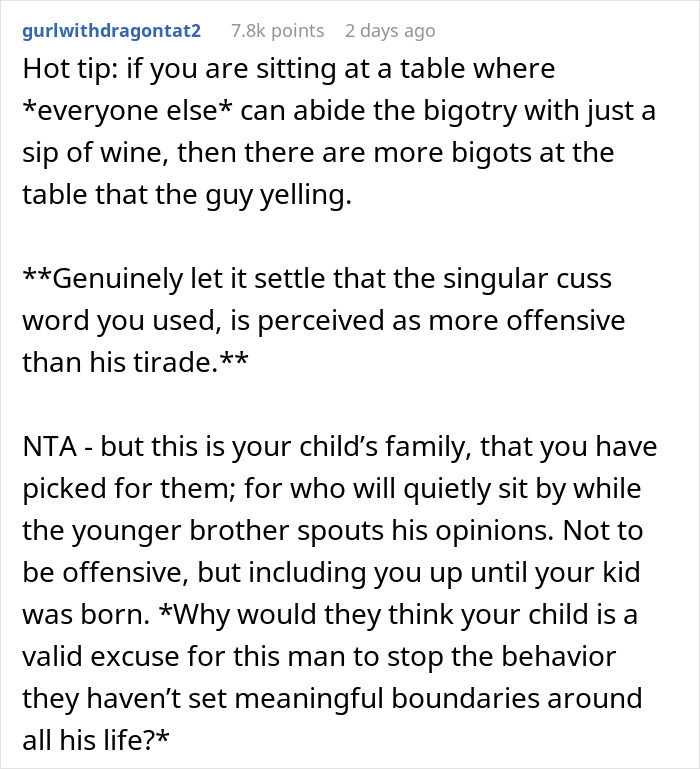
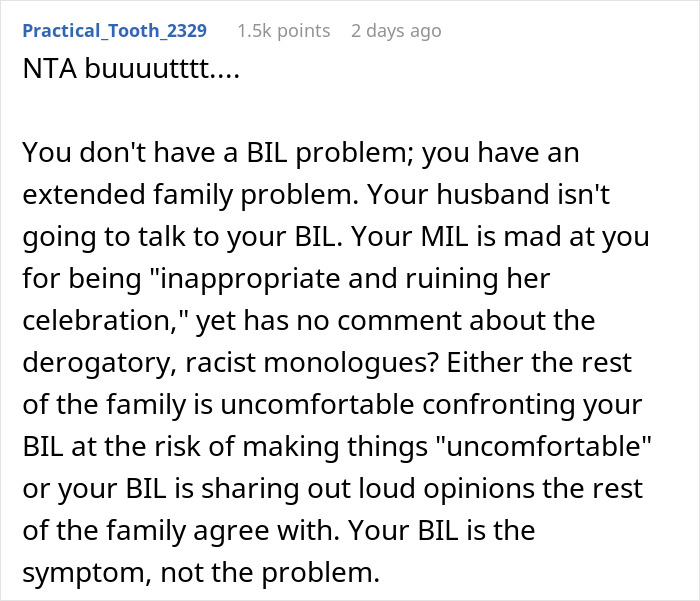
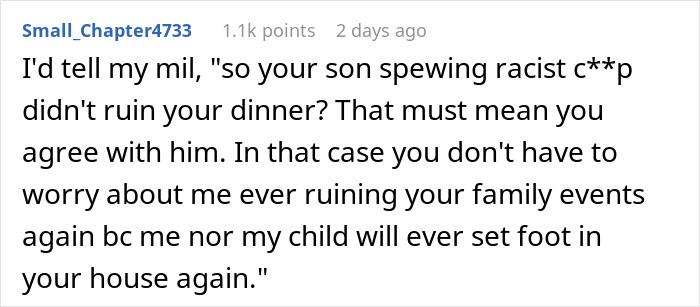

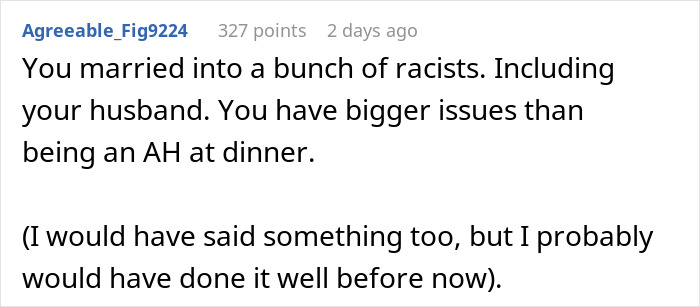
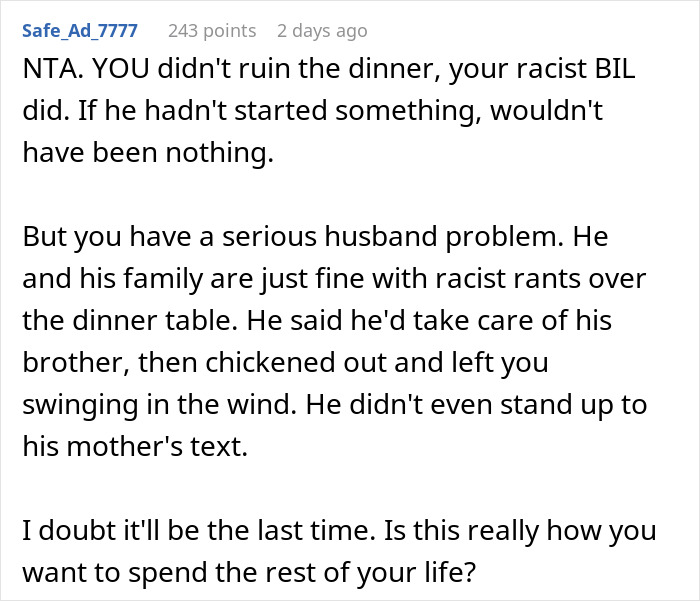
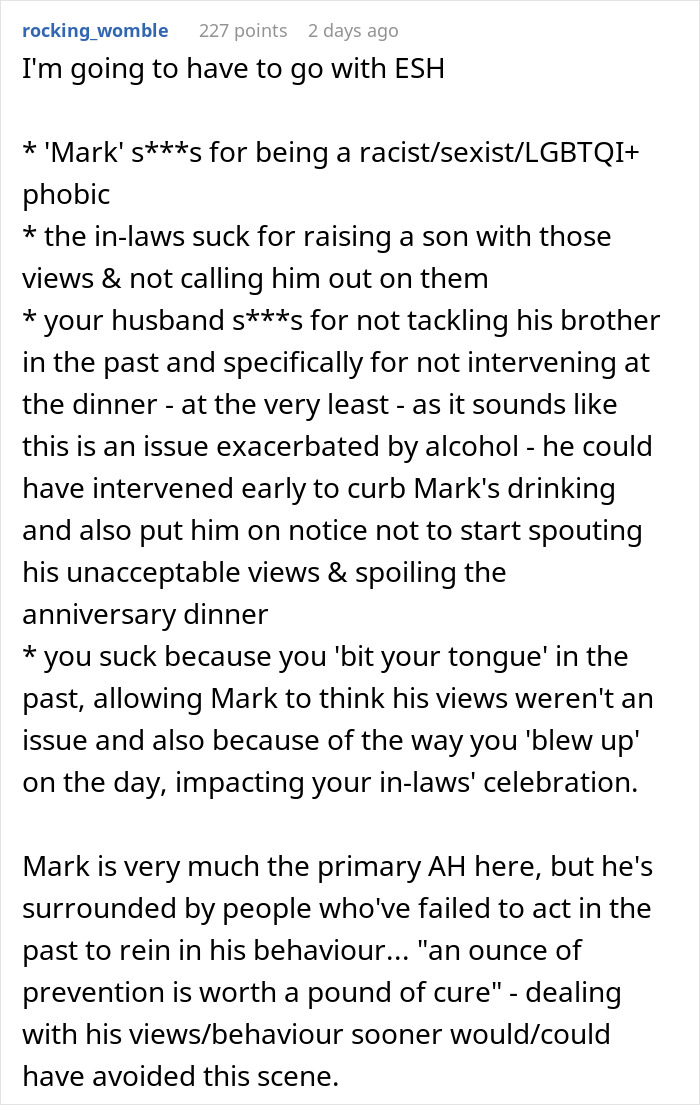
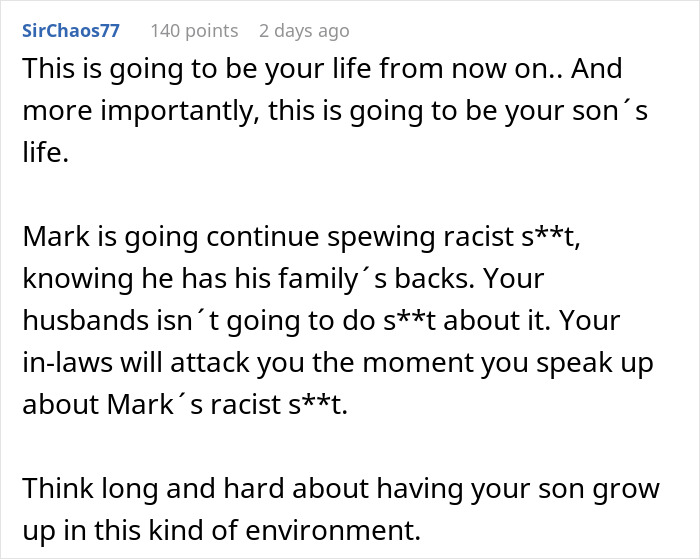
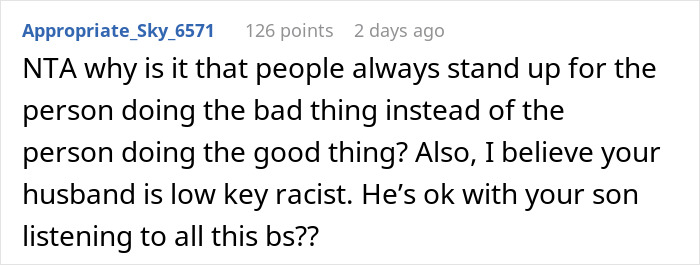
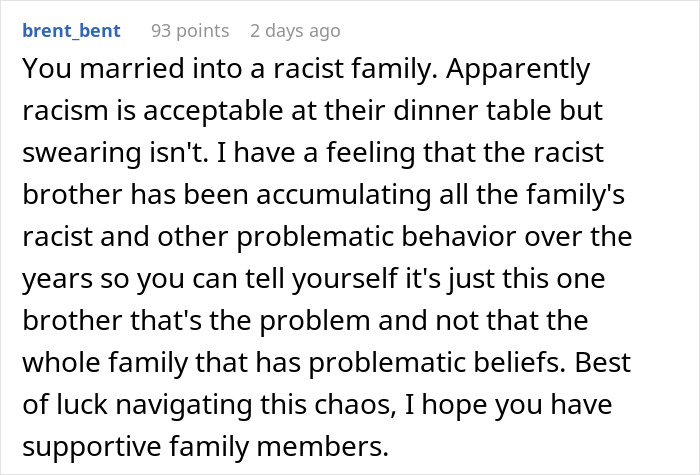
 Follow Us
Follow Us





